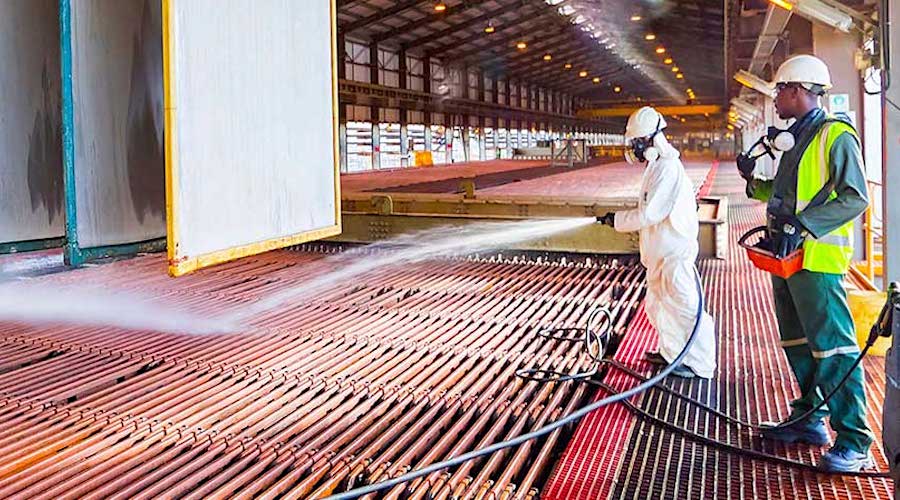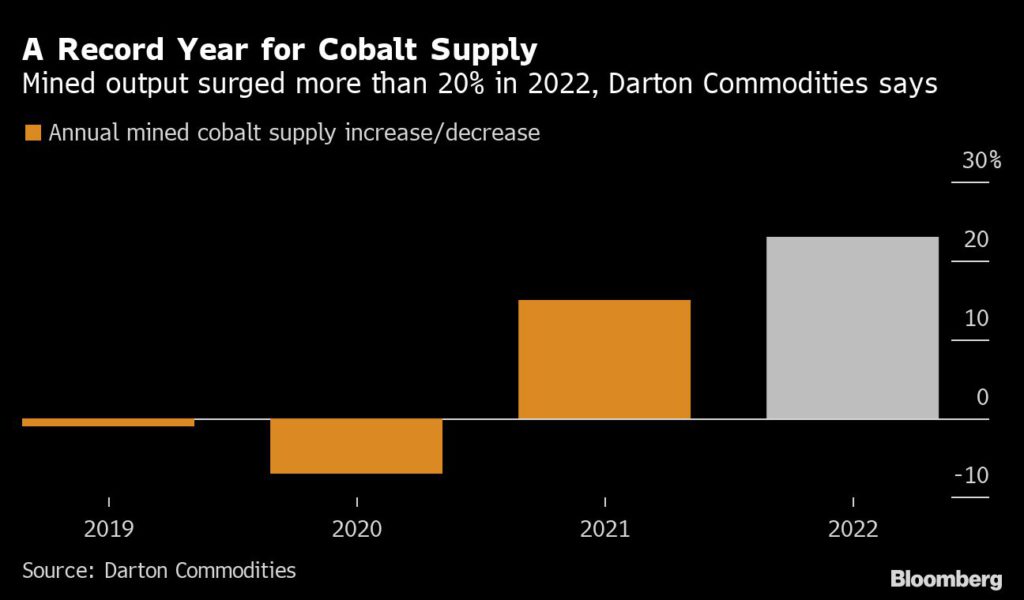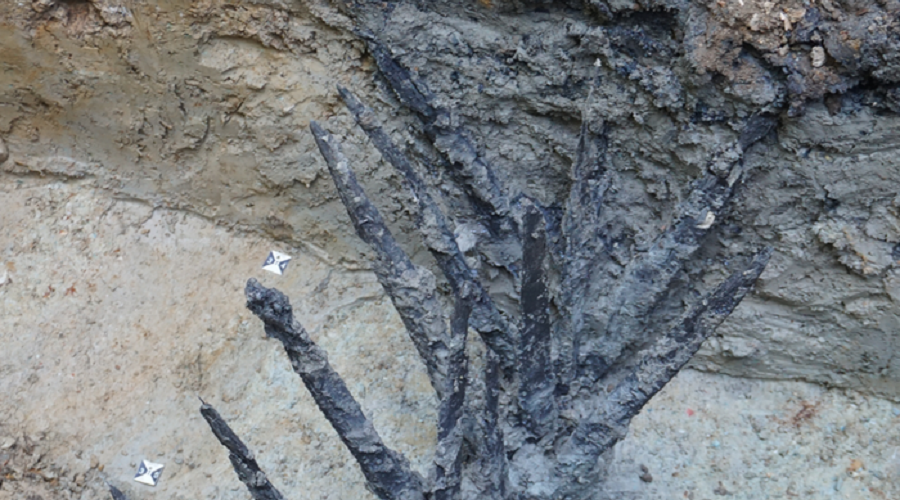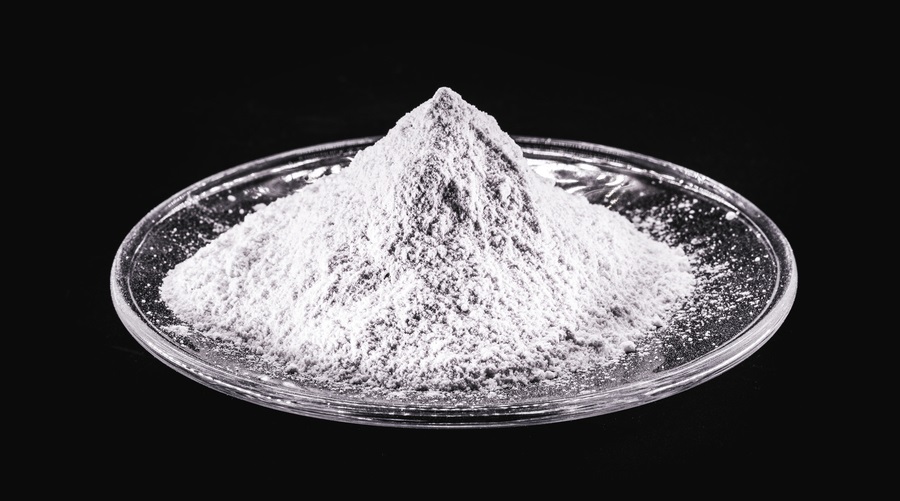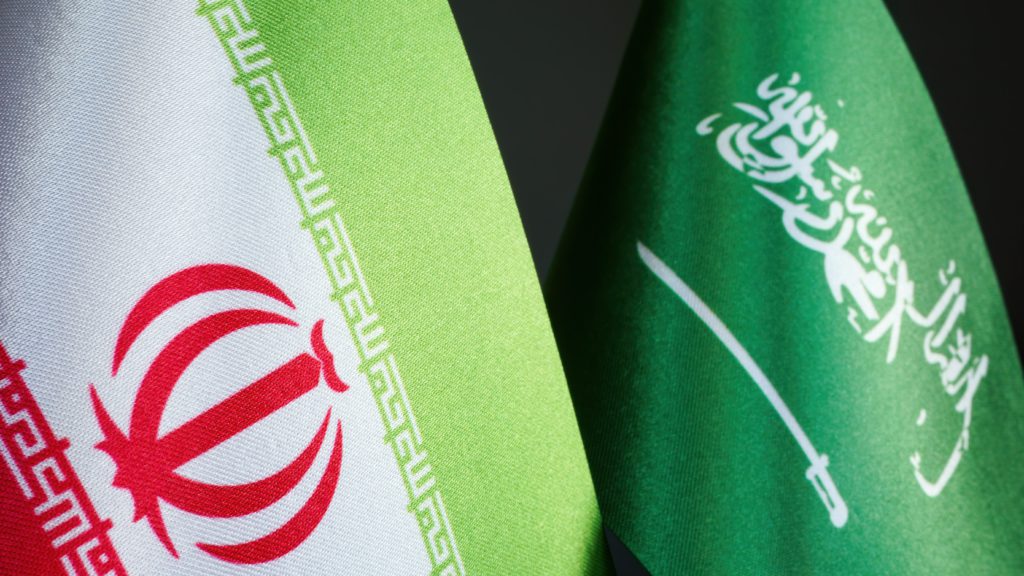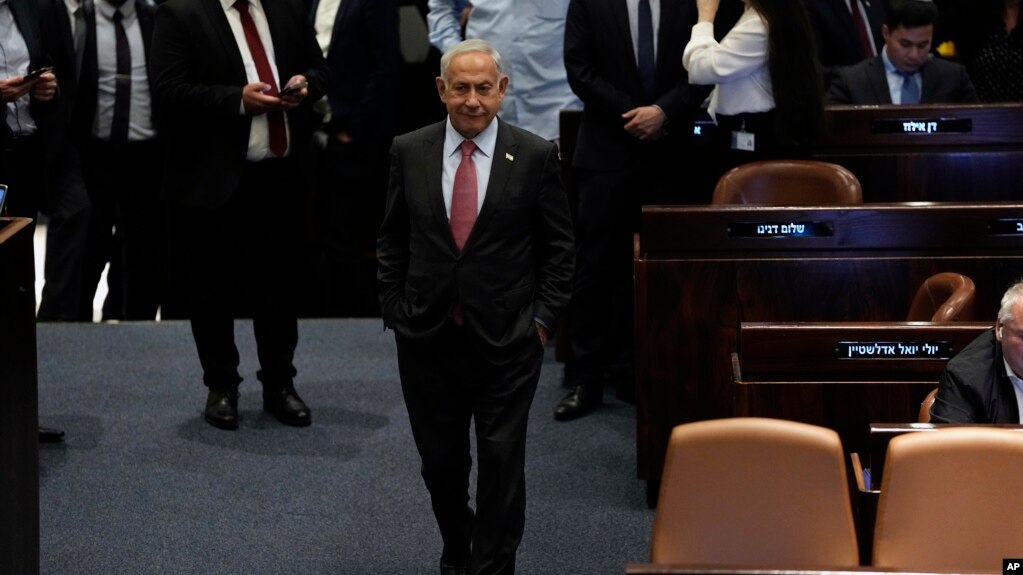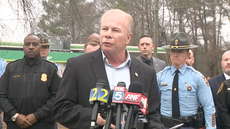The garden that grew from grief
March 13, 2023
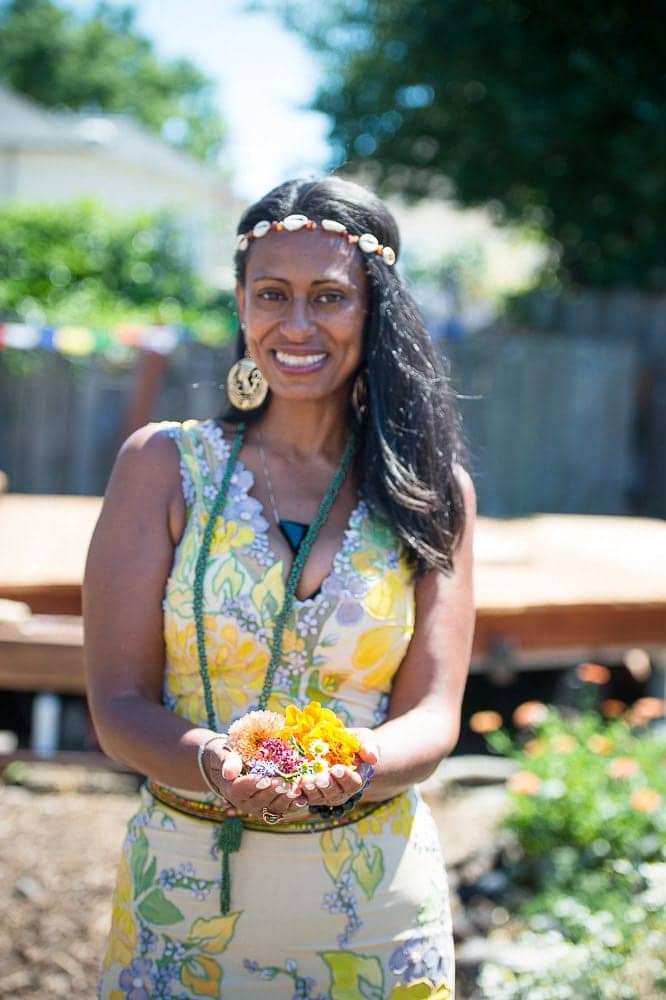
Owner of an urban garden in West Oakland,
Gabrielle T. Dickey Chanel El, powers through based on love and unity.
by Robbie Jackson
Tupac wrote a poem back in the 20th century where he spoke of a rose that grew from concrete. He describes how this rose defied the laws of nature and thrived despite its circumstances and environment.
In the Bay Area, you can find plenty of those very same roses as far as the eyes can see. They remain generation after generation despite gentrification’s best efforts. And in West Oakland on the corner of 29th Street and Martin Luther King Boulevard, you’ll find not just a rose but a whole garden built on love only a mother could provide.
I was blessed to grab some time from the San Francisco native who is the keeper of this garden. Knowing that energy can’t be created or destroyed, this mother was able to grow a garden fertilized with the grief she feels from the loss – proving that when channeled correctly you can turn it into something beneficial to the whole neighborhood.
But don’t take my word for it. Hear from Gabrielle T. Dickey Chanel El, a native of the Fillmore District in San Francisco, Calif., yourself.
Robbie: So, first tell me what made you start a community garden?
Gabrielle: During my deepest moment of despair, loss and grief, I received a vision reel that played in my mind as a movie, which resembled a large healing community farm on land much further than I could even see.
This took place the day after the homegoing service of my youngest son, Immanuel McCarter El, as I sat in church service crying uncontrollably on June 30, 2019. This became my lifeline, similar to a floating-on-Cloud-Nine-inspiration-moment in living color.
Despite my then, and sometimes recurring, feelings of hopelessness, sadness and loneliness since Immanuel’s tragedy, I knew that there was a higher purpose to carry me through my Ground Zero. I could feel this knowing that a new liberation for myself and others was in this distant future if I just held on and believed this dream as my new reality.
Robbie: Did you have any previous experience with urban farming before starting the community garden?
Gabrielle: Growing up in the city of San Francisco I had no previous exposure to farming at all, but I remember as a little girl taking long rides to the country house in Corning, Calif., with our father where he exposed us to picking fruits, nuts and berries. We would bring home large boxes of produce and my mother would teach us about canning. I remember blackberry and apricot jams and preserves being my favorite.
My son and artist Ziek McCarter, one of our co-founders, did have the opportunity to work directly in urban farming with Community Grows, here in SF at the Rosa Parks Elementary School garden site back in 2011, following the murder of my husband, Rev. David McCarter. I witnessed the magic of him working within the urban garden and bringing awareness through his Eden EP project that impacted the lives of the children and all those connected to the garden.
Robbie: How has the garden positively affected your community?
Gabrielle: I believe this garden has created a safe place to call home for those seeking a
sanctuary from the pain of grief. It has united a tribe for survivors to call family. To witness members of our BIPOC community who have been disenfranchised for hundreds of years in this never ending cycle of repeated gun violence, hate crimes, racism and murder come together. That’s reflected in the look on their faces when visitors walk behind the veil of our garden in amazement that an oasis can be created from the chaos of life and pain.
In addition, I believe that my community garden can also mitigate some of the issues that plague urban areas. For example, building and strengthening community ties, increasing the availability of nutritious foods and creating a more sustainable food system.
Robbie: What challenges do you currently face?
Gabrielle: Some of the challenges we face as a family organization in doing this intentional yet impactful community healing work is keeping a healthy balance of our own mental and emotional well-being. We realize that we have endured so much as a family with still no legal advocacy team or attorney representation and it’s 11 years later. We wait for our day when someone will investigate our claims and file a federal case to seek some form of accountability for these injustices and closure for our tragedies.
There is also that knot in my stomach because I fight that anger when I see police officers or law enforcement that are supposed to serve and protect all people. I believe too often; police officers have not been held accountable. This lack of accountability has eroded community trust and fostered suspicion and resentment.
In order to restore police legitimacy, there should be structures in place to promote responsible, accountable policing and measures to ensure that police are held accountable for their actions when they deviate from that standard.
I’ve learned that we will continue to be affected and triggered from the rise across this nation of racially motivated crimes and murders of our Black and brown people unjustly. We still seek ways to cope with these two traumatic deaths within an eight year time span.
Through this vision we must find the continued courage and strength while working full time jobs, for it has negatively affected my own health and well-being during those heavy times of Angelversaries, birthdays and the fondest memories that reminds us of the lives they spent here with us.
Robbie: Is there anything we, the community, can do to help directly eliminate those issues?
Gabrielle: First and foremost, it is crucial that we educate our leaders who represent our communities. If there is no one in leadership who understands our communities’ issues and needs, then how can we expect policies to be changed for the better or our needs to be included in new legislation?
One example I can think of is for leaders and those in power to reflect on the communities they serve. In addition, it is crucial to connect us with other community leaders willing to build with us in training, financial strategies and business management with commitment to long term funding.
Our community is willing to share our story with those passionate about restorative healing practices, wellness, music, gardening and nature as tools for alchemy to our continued healing so that we may maintain the garden programs.
As well as further redevelopment of our storefront building to provide indoor services for programs, especially our annual Apollo Carter Day of Freedom June 13, the day he ascended. Another is dedicated fiscal sponsorships to access government funds for salary and stipends for our volunteers providing long hours of in-kind donated time to serve our vision for the community.
Robbie: What changes have you witnessed in the Bay Area in the last five years?
Gabrielle: The effects of the Covid-19 pandemic caused us all to be more proactive with our health and self care. However, the pandemic continues to have a negative impact on many people who are facing fear and anxiety.
There has also been a huge spike in violence, murders within and amongst the African American community; therefore, the need for healing and mental health services have increased within all ages and has impacted their mental, social and economic well-being. I’m grateful for the ease up on the stigma for seeking mental and self care. It was almost taboo and frowned upon as if you were not “strong enough” to cope with daily life.
Robbie: What advice do you have for anyone looking to channel their grief to serve a higher purpose?
Gabrielle: The advice I have for anyone looking to channel their grief to serve a higher purpose is to believe and listen to your inner self. It is alright to take a leap of faith and throw yourself into the unknown. When you throw yourself into the unknown you will discover who you truly are and what your calling is.
It is also important to invest in cultivating alone time to hear that still quiet voice within. To reflect on those memories of loved ones that ignited their laughter and joy. For my Immanuel, it was his music, nature, teaching, telling jokes,and advocating and empowering others, but most of all spreading love to others. Hence the name of our organization that was born from his only music EP released while still in high school.
It was a place of complete surrender, solitude, and stillness where nothing else mattered except to go within and find the ultimate source of love where all things in life were created. It took me back to my true passions. As I started to tap into all elements of mother nature my life vibrations definitely shifted to a higher power.
Robbie: What advice can you give to anyone who is looking to start a garden of their own?
Gabrielle: The advice I would give is to believe that you can do it with that same love for your child as a new parent would give. With my calling I started with the two special peace lilies given to me when he passed and the succulents he planted on our last mother’s day together.
So, start small with nurturing one or two plants in your home or patio that you feel called or connected to. Although gardening can be quite a task, you must remember the benefits of gardening, which includes decreased depression and the reduction of anxiety and stress.
Gardening also promotes healthy eating and exercise habits as well as family and community bonding. Find a person or organization that has some knowledge or experience with growing gardens to see if they would like to mentor or share insights on the best practices for planting seeds in alignment with the seasons.
Robbie: Can you please give the name, location of the community garden and the
best way to support your organization?
Gabrielle: Long Live Love Foundation Center is located in West Oakland’s Ghost
Town in the back of our family’s private property on 29th Street and Martin Luther King Blvd. We sincerely welcome donations of any amount supported for further development of specific programs that align with the families we serve.
Sharing with us especially on our annual Apollo Carter Day of Music & Freedom which is June 13th, that day he ascended. We will be celebrating his Angelversary this year in the garden on Sunday, June 11, 2023. Support with connecting to local, national sponsorships or funding organizations that want to give back to families such as ours. We want to be a source of light that we are witnesses of. We all can rise after being impacted by grief, trauma and injustices to wellness for singles, families and the future of our children
.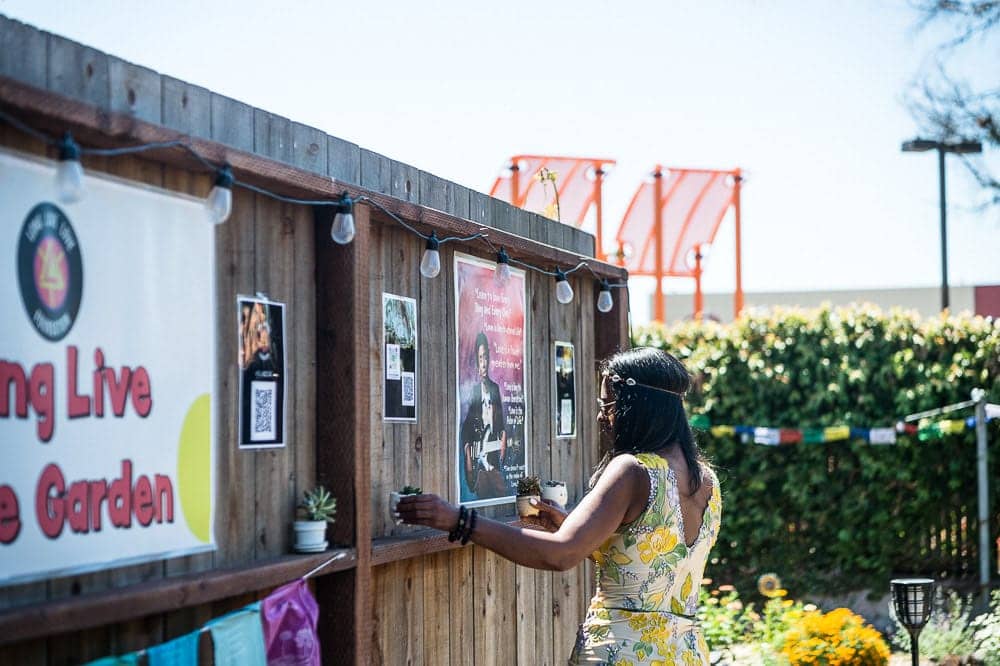
“The advice I have for anyone looking to channel their grief to serve a higher purpose is to believe and listen to your inner self. It is alright to take a leap of faith and throw yourself into the unknown. When you throw yourself into the unknown you will discover who you truly are and what your calling is,” says Gabrielle T. Dickey Chanel El.
Robbie Jackson is a journalist with the SF Bay View’s Community Journalism Program. You can reach her and other writers at the editor@sfbayview.com.
